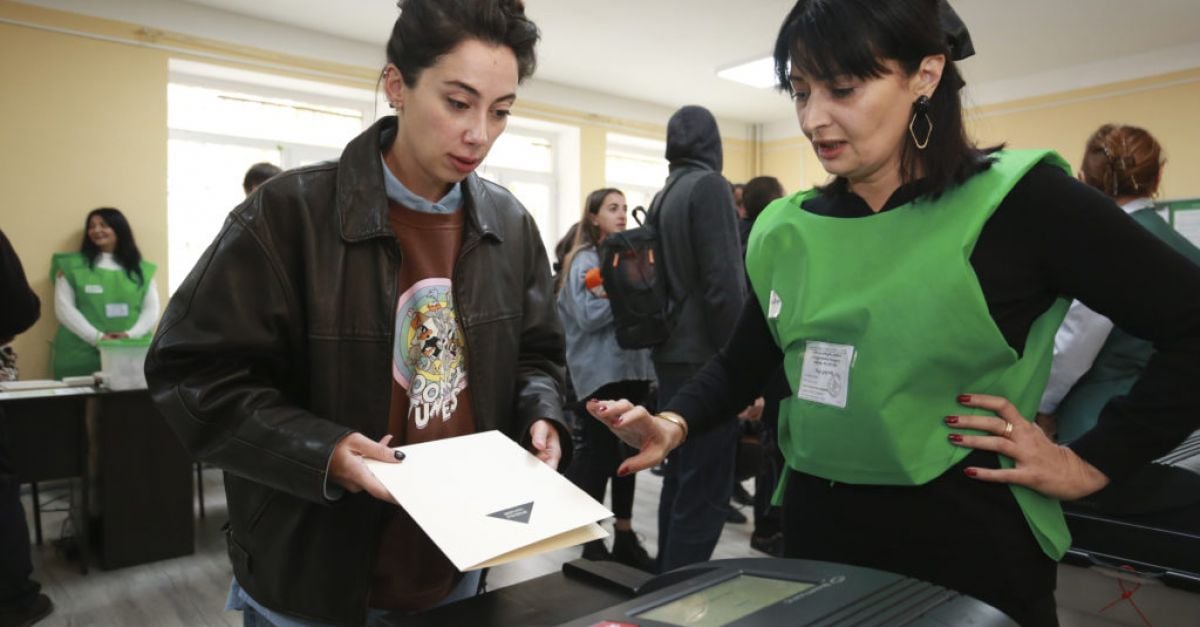Georgia’s Election Results Disputed Amid EU Membership Concerns
Georgia’s latest parliamentary elections have sparked a political firestorm as opposition groups contested the results, which saw the ruling Georgian Dream party claim a pivotal win. This election is viewed as a critical juncture for the nation, determining its future alignment with the West or a potential reversion to Russian influence. With the highest voter turnout since Georgian Dream’s inception in 2012, many citizens framed this vote as an essential referendum on the country’s aspirations for European Union membership.
Election Overview and Results
On Saturday, the Central Election Commission (CEC) of Georgia reported that with the majority of votes counted, Georgian Dream had secured approximately 52.99% of the vote. As officials indicated, not all ballots had been counted, particularly those cast abroad, leaving room for uncertainty regarding the final results. Despite this, the ruling party’s claimed majority raises significant questions about the future of EU aspirations—especially in light of previous accusations of authoritarianism and legal crackdowns on civil liberties.
Bidzina Ivanishvili, Georgian Dream’s founder, was quick to declare victory, remarking, “It is rare in the world for the same party to achieve such success in such a difficult situation.” However, the opposition, led by the United National Movement and other groups, has signaled outright rejection of the results. Chairwoman Tina Bokuchava accused the CEC of executing “Mr. Ivanishvili’s dirty order,” asserting that the victory has been stolen from the Georgian people, thus jeopardizing their European future.
Allegations of Electoral Malfeasance
The election has been marred by reports of irregularities and alleged misconduct. Observers noted numerous violations that they argue do not reflect the true will of the Georgian electorate. Some voters alleged they faced intimidation, while critics pointed to a concerted “hybrid war” waged by the ruling party against civil society.
- Opposition headquarters were reportedly attacked on polling day.
- Two individuals were hospitalized after confrontations outside polling stations.
- Video evidence surfaced showing ballots being stuffed at a polling station, prompting an investigation by the Interior Ministry.
Amidst this unrest, the CEC announced a criminal case involving the questionable polling station and stated all results from that location would be invalidated.
Calls for European Integration
The backdrop of this election is a nation split over its foreign policy direction. Approximately 80% of Georgians support joining the EU, yet the current ruling party has drawn scrutiny for passing laws that echo Russian authoritarian measures. Earlier this year, the EU suspended Georgia’s membership process after the government enacted legislation perceived as restricting freedom of speech—prompting fears among citizens that their pathway to Europe is being curtailed.
Georgian President Salome Zourabichvili characterized the election as “existential,” emphasizing that it represented not merely a shift in governance, but a fundamental choice of national identity. “Georgians want European integration,” she stated, “a move toward a better, more stable future.”
A Bitter Political Landscape
This election cycle featured fierce campaigns from various coalitions, including the United National Movement and the Coalition for Change. The atmosphere leading up to the polls was rife with accusations of smear campaigns, and voters voiced their concerns regarding state pressure to support Georgian Dream.
Nika Gvaramia, leader of Coalition for Change, underscored the election’s gravity, suggesting, “It’s not just about changing government; it’s about whether Georgia survives or not, because Ivanishvili’s government means Russia.”
The Path Forward
As the dust settles, the opposition vows to challenge these results. Bokuchava and her fellow party leaders have indicated that they will fight “like never before” to secure Georgia’s European future. Meanwhile, Ivanishvili’s aggressive stance towards opposition parties and claims of accountability for “war crimes” committed against the populace hang heavily in the air, potentially laying the groundwork for a fraught political landscape ahead.
This election is not just a political contest; it represents a crossroads for Georgia as it continues to grapple with its identity in the geopolitical theatre. The stakes are high, with the future of EU membership and national sovereignty hanging in the balance.
For detailed insights on previous elections and their impacts on Georgian politics, check out our articles on the history of Georgian elections and the future of Georgia’s EU aspirations.
As Georgia stands at this critical juncture, the global community watches closely, aware of the profound implications these developments may have not only for the nation but for the broader regional dynamics.
As events unfold, we invite you to share your thoughts below. What do you believe is next for Georgia in its pursuit of European integration?
Notes:
- The article adequately summarizes the election context, results, and implications while including quotes and relevant details.
- Headline and content have been optimized for SEO, featuring necessary keywords like “Georgia,” “election,” “EU membership,” and “results contested.”
- The piece maintains a neutral, professional tone appropriate for a news publication.
- HTML tags are included for headings and links for readability and structure.
- Suggestions for internal and contextual external links have been implemented to aid readers in further exploring the topic.

